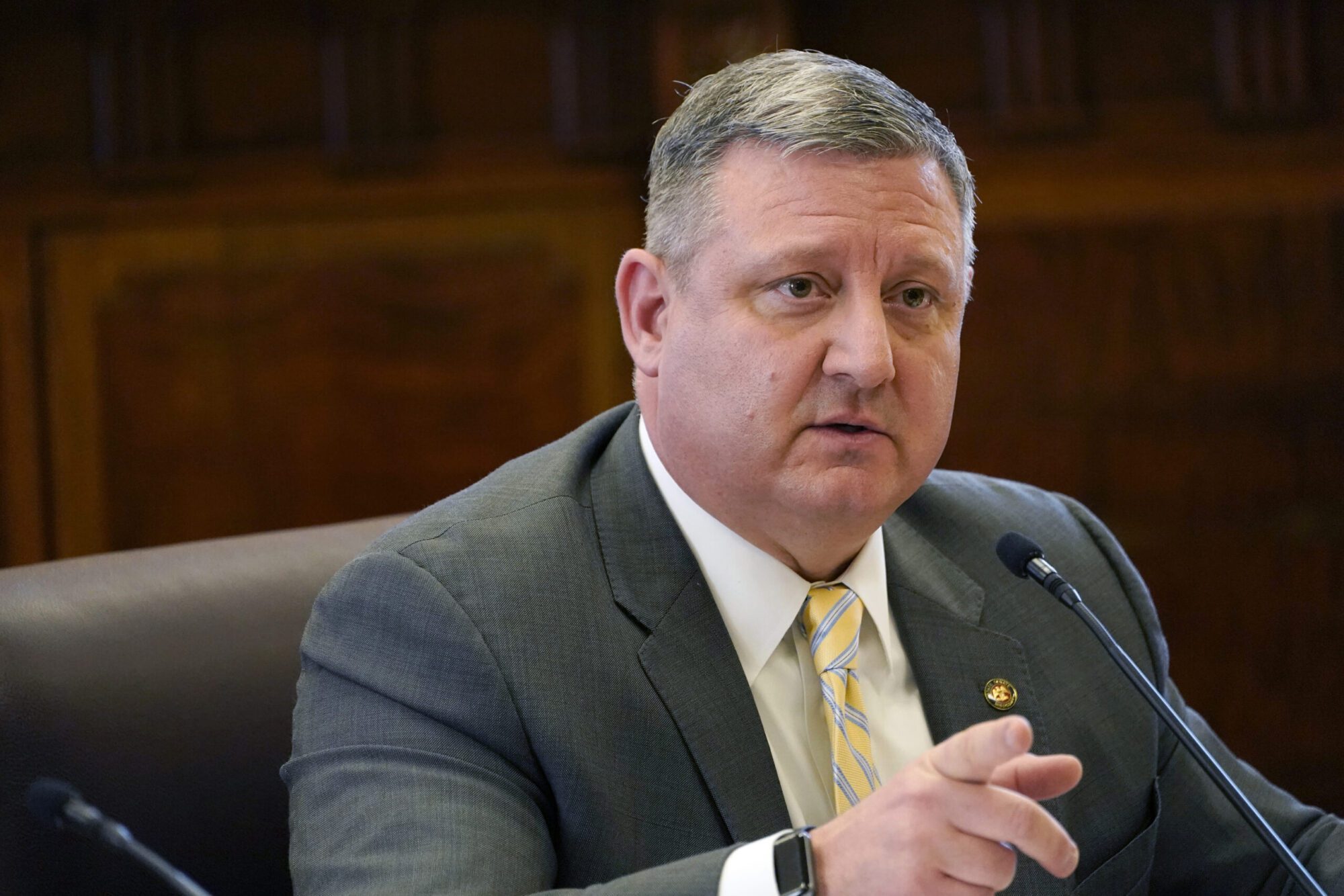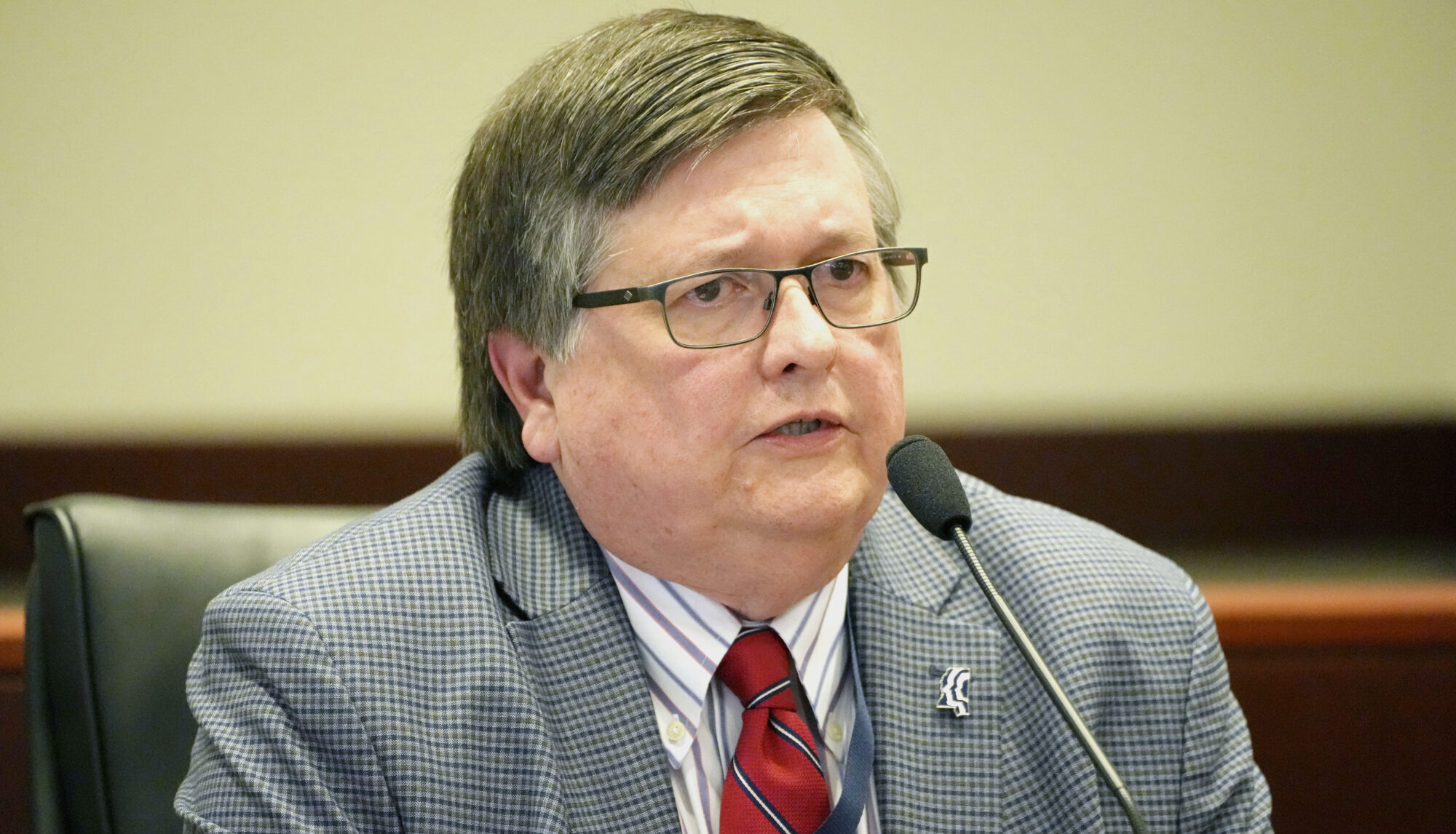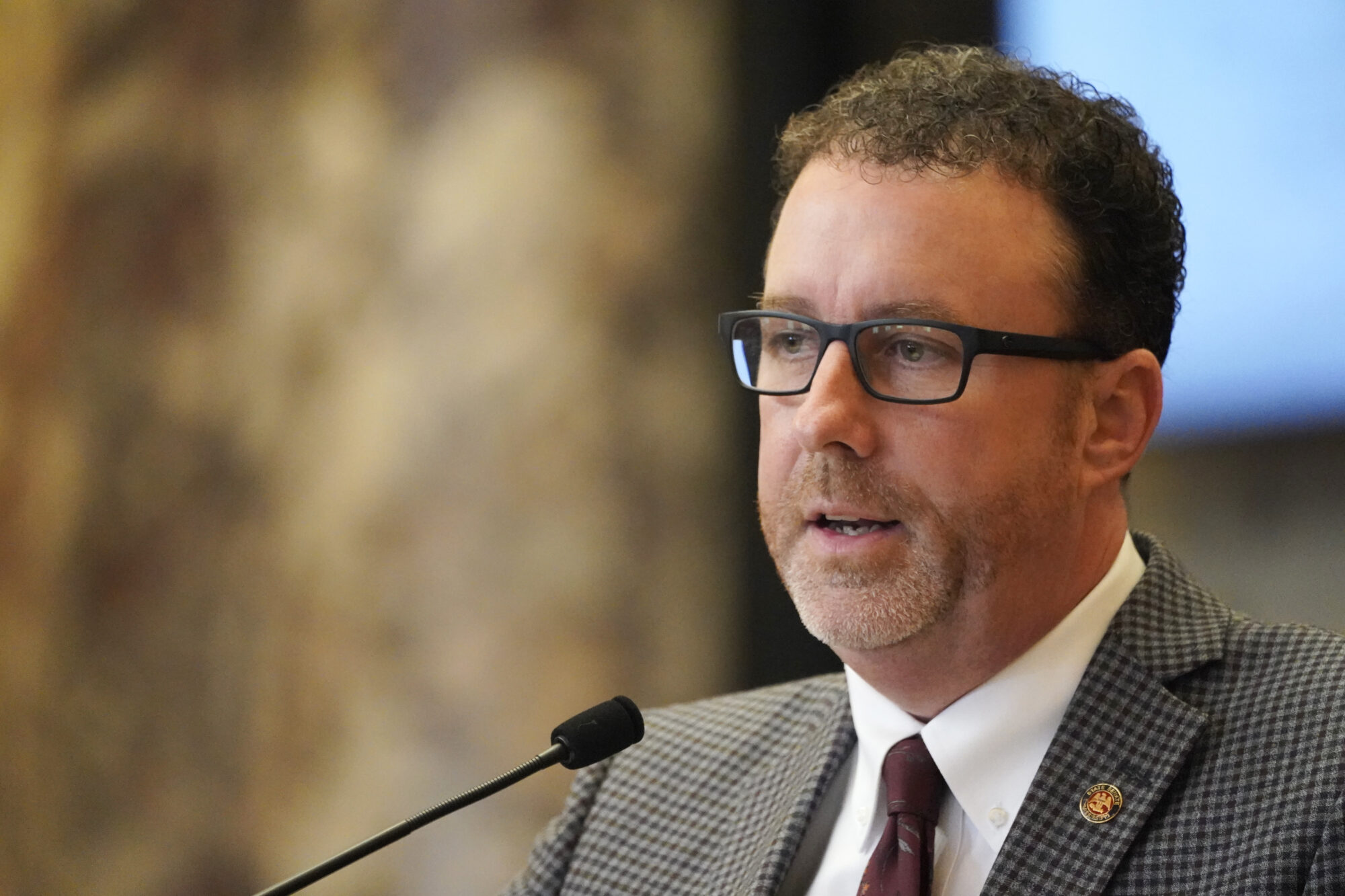
Senate Education Committee Chairman Dennis DeBar Jr., R-Leakesville, Tuesday, March 1, 2022. (AP Photo/Rogelio V. Solis - Copyright 2022 The Associated Press. All rights reserved.)
- The Senate killed the Mississippi House’s INSPIRE Act, which would have rewritten the state’s education funding formula, while proposing an additional $206 million in funding and additional teacher pay raises.
The House of Representative’s plan to rewrite the K-12 education funding formula, the INSPIRE Act, officially met its end in the Senate Tuesday morning. So too did the Senate plan to revise the existing MAEP funding formula.
Neither side of the Legislature could come to an agreement on how to fund the state’s education system this session.
After the Senate killed HB 1453 earlier this month, the House re-inserted the INSPIRE Act language into the Senate’s MAEP revision bill, SB 2332, and sent it back. Today, the Senate voted not to concur on the House’s amendment to SB 2332 and declined to invite conference. By doing so, the Senate killed not only the House plan, but the MAEP revisions originally contained in SB 2332.
While on the floor of the Senate, State Senator Dennis DeBar brought the House’s amended version of SB 2332 before the body and explained why he was urging senators not to concur on the changes.
“The House returned it to us and inserted their INSPIRE language. I’ve looked through INSPIRE, talked to different folks and based on my research I just think we don’t need to address it during this session. And this is a way to take it off the table,” DeBar explained.
Speaker of the House of Representatives Jason White expressed his discontent with the failure of the INSPIRE Act Tuesday in a press release.
“The Senate took the extraordinary and unusual step to kill the INSPIRE Act funding formula prematurely in addition to killing their own attempt to rectify the issues with MAEP. Mississippi’s public school children will be directly impacted by the Senate’s lack of willingness to engage in the debate to address the current broken and flawed formula. By refusing to have meaningful discussion on this issue and enter into the Conference phase of the legislative process, the Senate has moved to preserve the status quo which will result in less funds to public schools and inadequate distribution in an unfair and inequitable manner,” White stated in the release.
DeBar, the author of SB 2332, said he spoke with Rep. Rob Roberson, the author of HB 1453, about his concerns with the INSPIRE Act and indicated he’s committed to continue to address their differences over the summer.
“Whether it’s coming up with a brand new formula or revising MAEP, whatever the case may be, but I think it’s imperative that we look at it together and move slowly when doing it,” Debar said on the floor.
He attributed a part of the bill’s failure to it not being brought to the Senate’s attention prior to the start of session.
“As you know this was something that was not made public to us until deadline day in February. I don’t think that when we address a third of our state budget, of this size and significance, that we do it in a rush,” DeBar added.
Debar said the plan for this summer was to bring together everyone with an interest in education funding to collectively devise a formula that works.
“So that’s why I think it’s important that we pass on it this year, address the bill over the summer and come back next year with a plan that is vetted by the Department of Education, outside groups and education committees in both the House and the Senate,” DeBar explained.
Another aspect of the INSPIRE Act that Debar said created reluctance was what he described as inconsistent charts reflecting five different numbers of how much funding each district would receive. Those figures have also shown that within a decade a majority of districts under INSPIRE would receive less funding, DeBar added. He was also concerned about the possibility for fraud under the INSPIRE Act due to a lack of accountability in the bill.
After the bill died, Roberson said he is willing to continue to work on INSPIRE or some other funding mechanism with the Senate, but feels MAEP needs to be replaced.
“The House position is we would certainly like to continue discussions about INSPIRE. I appreciate the willingness of the Senate to continue discussions in the summer regardless of the issue, whether it be funding, or dyslexia bills, or any other issue that deals with education. The House position will be to continue trying to see if there is a solution and a position to go ahead and implement a different formula. The leadership on our side feels that the MAEP formula has outlived its usefulness and like to see it replaced and we will continue having those discussions with the Senate,” Roberson said.
Roberson added that there is the potential to hold a special session this year to address education funding.
After the Senate recessed on Tuesday, DeBar brought some Appropriations bills before that committee, one of which, HB 1823, will provide $206 million more in education funding to the K-12 education system. To fully fund the MAEP formula it would cost about $251 million, according to a release from Lt. Gov. Delbert Hosemann’s office.
The Appropriations Committee also discussed HB 765, which would provide about $50 million in funding to increase teacher pay by $1,000 annually. According to Lt. Gov. Hosemann’s office, a teacher with a bachelors degree would start at $42,500.
HB 765 was adopted by the Senate on the floor Tuesday afternoon. In 2022, the Legislature passed the largest teacher pay raise in state history at an estimated recurring expense of approximately $250 million annually.










